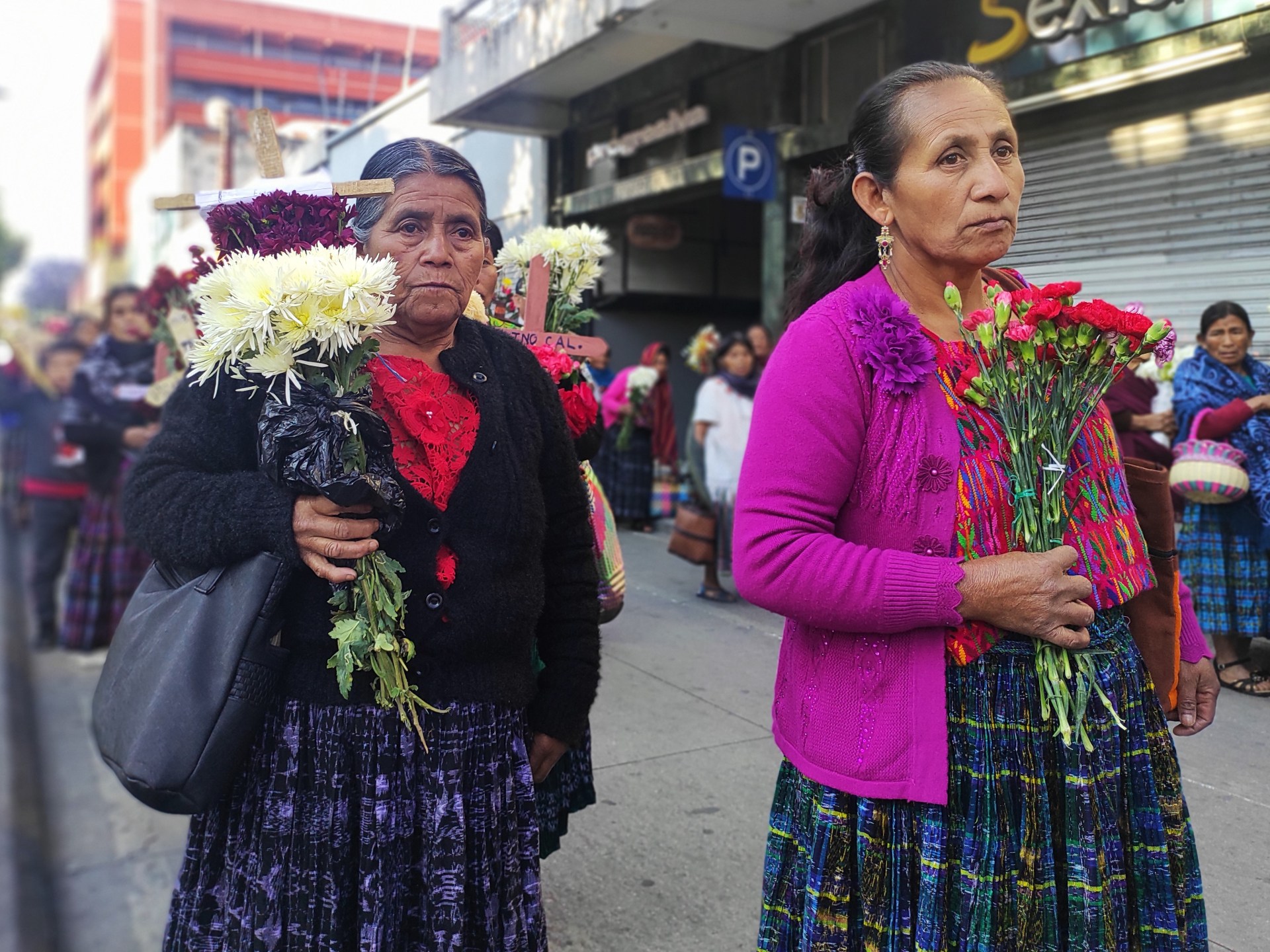Guatemala City, Guatemala – Jesus Tecu remembers wrapping his little brother in his arms in an attempt to protect the two-year-old from the horrors unfolding around them.
It was March 13, 1982, and their village of Rio Negro — a Maya Achi community situated along a river in central Guatemala — was under attack. Guatemala was in the midst of a grisly civil war, and army and paramilitary forces had been stalking the countryside, razing Indigenous villages to the ground.
A patrolman decided to take Tecu to be his household servant, but he did not want to bring home a toddler too. Ignoring Tecu’s desperate pleas, the patrolman grabbed the two-year-old from his arms, smashed him against rocks and threw his body into a ravine.
An estimated 107 children and 70 women died in Rio Negro that day. Tecu and 16 other children survived only because they were chosen to be servants.
Now, Tecu hopes a criminal case in Guatemala can offer a shred of accountability for atrocities thousands of Indigenous people experienced during that period.
“We have never stopped seeking justice,” said Tecu, who has spent the last 30 years as a human rights activist and advocate for community rebuilding.
On Friday, Manuel Benedicto Lucas Garcia, the former head of Guatemala’s army, is slated to stand trial for genocide. It is the latest chapter in the country’s fitful, stop-and-start efforts to achieve justice for the systematic killing of Guatemala’s Indigenous peoples.
An estimated 200,000 people were killed during the war, which stretched from 1960 to 1996. More than 80 percent were Indigenous Maya.
A United Nations-backed truth commission found that the military committed acts of genocide against five of the country’s 22 different Maya peoples between 1981 and 1983. That period overlaps with Lucas Garcia’s tenure as the chief of the general staff of the army.
For seven months between 1981 and 1982, Lucas Garcia helmed Guatemala’s forces, as part of the administration of President Romeo Lucas Garcia, his brother. He now stands accused of genocide, crimes against humanity, forced disappearances and sexual violence.
But Tecu points out that time is running out for survivors to find justice. Decades have passed since the war’s end. Alleged perpetrators like Lucas Garcia, 91, are growing old — and in many cases, dying.
“The importance of this case is that there is an intellectual author alive,” Tecu told Al Jazeera. “He needs to be held accountable for what happened with the deaths of so many children, women and men.”


